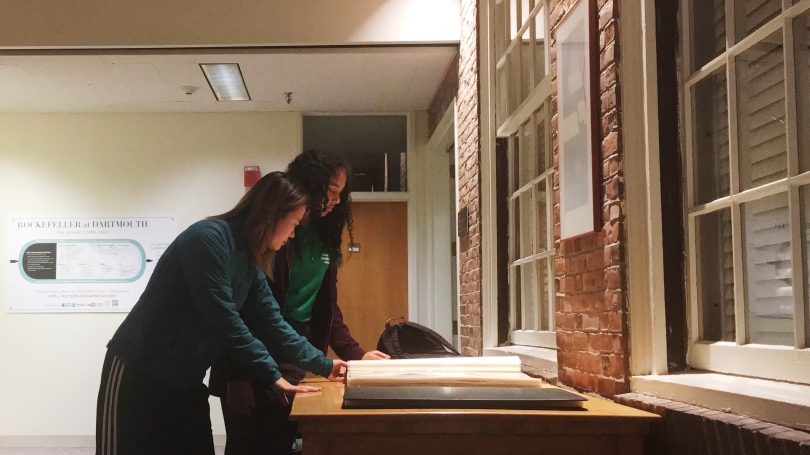
Menu
- Public Policy
- Leadership
- Funding
- News & Events
- About the Center
Back to Top Nav
Back to Top Nav
Back to Top Nav
Back to Top Nav
Read more profiles about alumni who served in public office and made an impact.
When he was a student in the late 1920s, Nelson A. Rockefeller ’30 helped the nearby town of White River Junction recover from the Great Vermont Flood of 1927. His only request was to not be featured in any newspaper or other media article because his father, John D. Rockefeller, discouraged such publicity. Unearthing a little-known anecdote such as this one, connects undergraduate students to Nelson Rockefeller—a public figure who went on to contribute his wisdom, energy, and resources to the nation as a governor and vice president.
The Rockefeller Center was dedicated in September of 1983 in honor of Nelson Rockefeller. At the same time, his Class of 1930 dedicated a wall in the Center that recognizes all Dartmouth alumni and alumnae who have served in public office with a plaque bearing the individuals’ names and service.
Currently, 189 alumni names are featured on the wall under an inscription presented by the class that reads, “…to honor our classmates and those who have preceded, followed, and will follow them in the Dartmouth tradition of accepting the responsibility of public life, we recognize here those who have served in national elective office or as governors.”
In celebration of the Center’s 35th Anniversary, and as part of the College's upcoming 250th anniversary, the Dartmouth College Public Service Legacy Project seeks to dramatically extend the reach of recognition that the Class of 1930 so generously began for these alumni.
The project is a collaborative student-led endeavor open to any undergraduate with an interest in research. The final product will showcase the important role that Dartmouth has played in the civic life of the nation (and perhaps beyond) by sharing the individuals’ stories beginning on campus and extending to their public service careers.
Jiachen Jiang ’20, one of the student project administrators, was intrigued at the prospect of researching more about Dartmouth alumni in public service and their continual impact in the field.
“I was really interested in getting more involved with Rocky, especially because many upperclassmen cited Rocky programs as one of their most impactful experiences. For me, working on this project and specifically researching Tsongas [Paul Tsongas ’62] was the highlight so far.”
Jiachen went on to explain that learning more about Tsongas ’62 and how his experiences motivated him to explore a career in public service enabled Jiachen to think about public policy in a different light.
“As a Computer Science major, I don’t typically spend a lot of time thinking about how the government is run, with the exception of the occasional news headline. Reading about how committed Tsongas was to making a difference in the lives of his constituents really helped me appreciate those who go into public service with such great intentions, even if they don’t always win the elections.”
Similarly, Alexandrea Keith ’20, another one of the student administrators for the project, expressed appreciation for the ability to think about how Dartmouth shaped public servants and how these servants shaped policy. One of her favorite parts of the project is knowing that, in a sense, this project will continue to persist beyond her time at Dartmouth.
“Because Dartmouth students and alumni continue to serve their communities and pursue careers in public policy, exploring this legacy never truly ends.”
Interested students can learn how to join in as a paid researcher on the Rockefeller Center website.